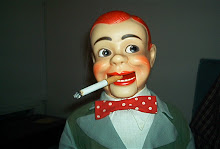It's part 3 of our journey to the roots of Muddy
Waters, so let go back to the days before Chicago.
Muddy had grown up with his grandmother after
his own mother had died. He remained pretty
loyal to her, staying in Mississippi longer than
he should have. Alan Lomax had discovered
Waters in 1941 at the Stovall Plantation, and
recorded a couple of tracks for the Library
Of Congress. Although it was a big money
making opportunity, nothing could stoke the
fire that was lit.
When Muddy moved to Chicago in 1943, it
wasn't an instant success. The audience there
was looking for sophistication, not the rough
Delta sound. It would take years before those
historic sessions with the Chess brothers. In
that time, Muddy worked several jobs- driving
delivery trucks, etc. He made alot of connections
and honed his playing at bars and parties.
As the war ended, the city folk were starting to
get interested in the familiar rural sounds
of their home towns. Sunnyland Slim,
like Muddy had grown up in the Delta, so
they had a good connection. Slim had the
opportunity to record, so he called Muddy in
to join him on "Johnson Machine Gun" and
Fly Right Little Girl". Muddy would then
go on to record "Little Anna Mae" and
Gypsy Woman". His playing was more polished,
with no bottleneck, but he had that thick Delta
accent. It was more sax and piano with
a fairly restrained Waters. Chess wasn't thrilled
and held back releasing them for a while.
It wouldn't be till 1948 when he was asked
back to record for Chess. He came back with
"I Can't Be Satisfied" and "I Feel Like Going Home".
Friday, April 3, 2009
Subscribe to:
Posts (Atom)

